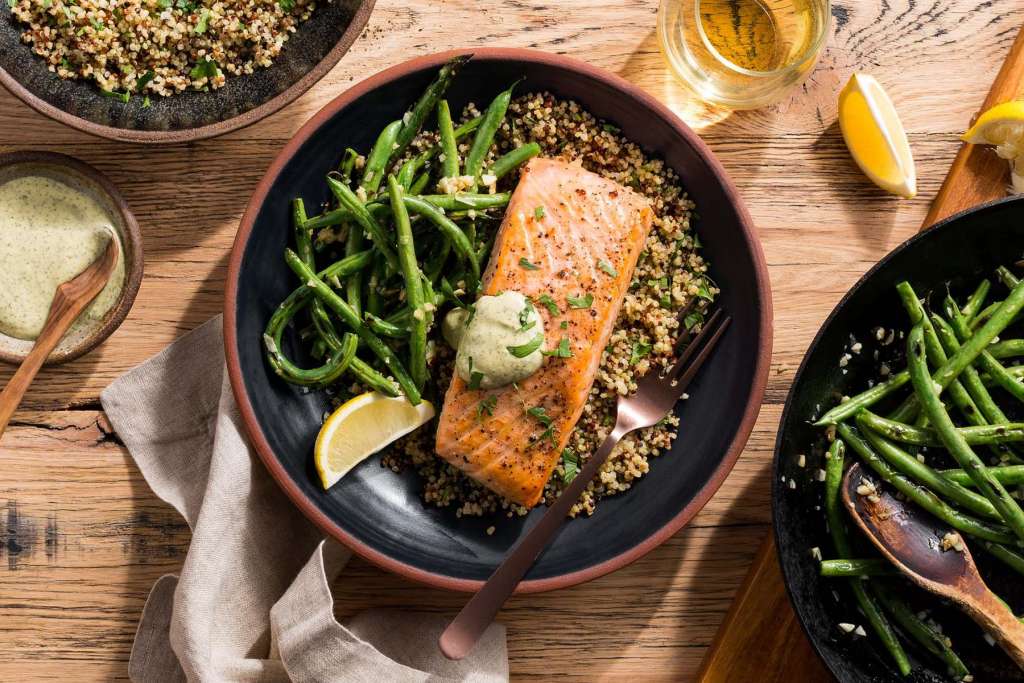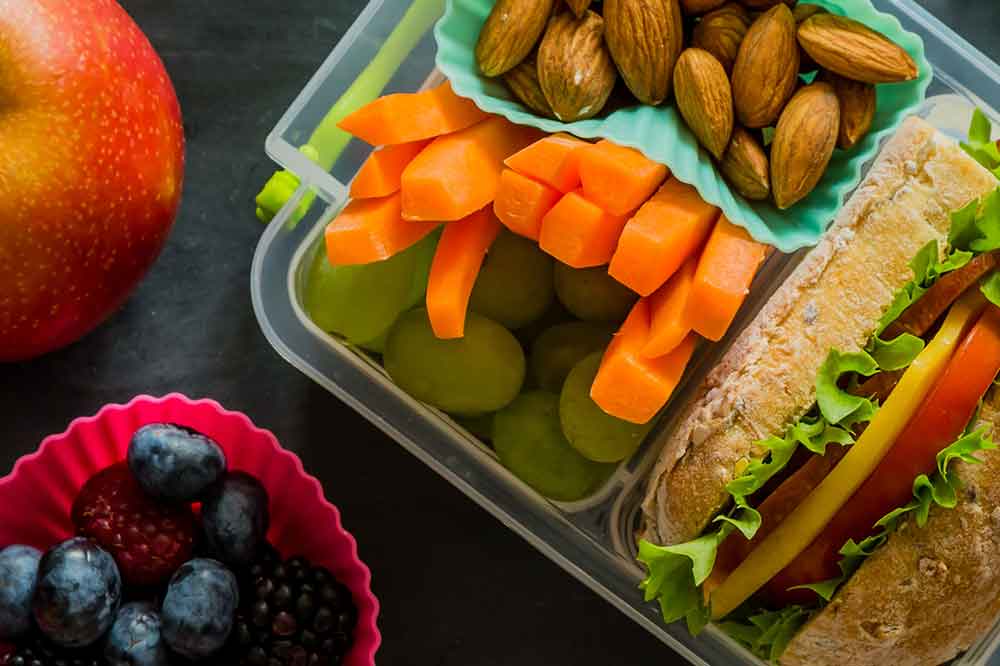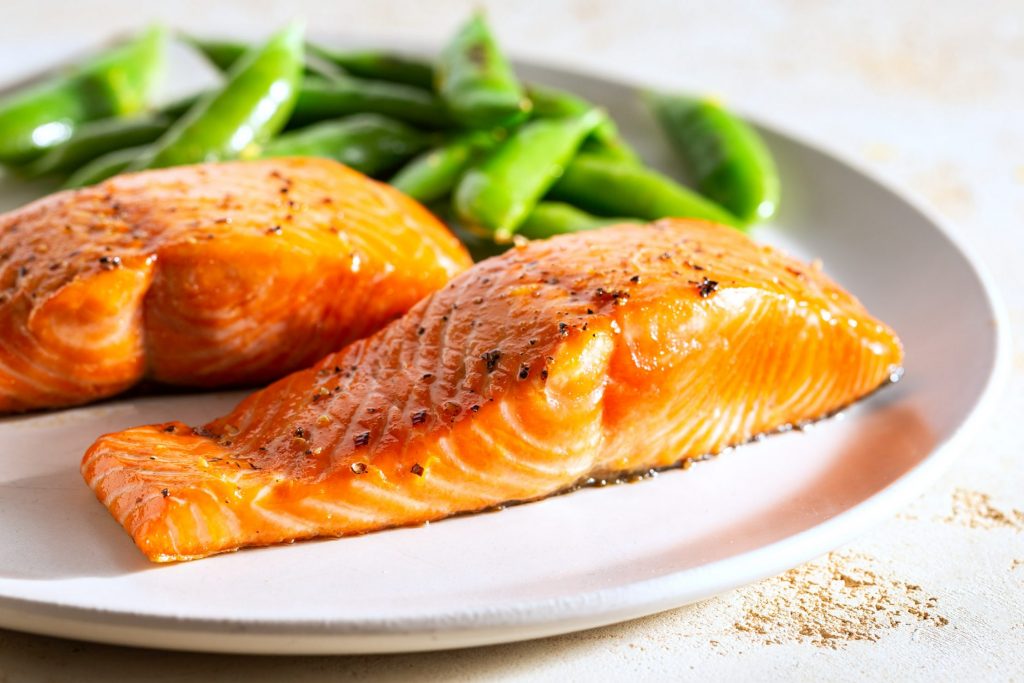Salt Shakedown

Sun Basket’s Chief Science Adviser, Dr. David Katz has been helping us sort facts from fictions and dispel myths about healthy eating. This week he takes on the salty topic of sodium.
What’s the role of salt in a healthy diet?
Sodium is an essential nutrient. We need some of it in our diets, but most of us get too much. An excess of sodium can stress the heart and kidneys, is associated with high blood pressure, and possibly has other adverse health effects. That’s because salt is used in processed foods both for flavoring and as a preservative. And the more salt we eat, the more we tend to want. The result is something of a positive feedback loop: a lot of processed foods high in salt shift taste preference for more salt, which encourages manufacturers to use even more.
How much salt is too much? Is there such a thing as too little salt?
There is some debate about the optimal level of salt, but it’s clear that most Americans get way too much. The general recommendation reflected in the Dietary Reference Intakes (the comprehensive, science-based nutrient guidance that is home to the RDAs) is no more than 2300mg of sodium (about 1 teaspoon) daily for a 2000 calorie diet. There’s a very convenient way to remember this: you want to average roughly 1mg of sodium per calorie over the course of the day. When foods have more sodium than calories, they pull your average up and make it likely that you’ll get too much; dishes that have less sodium than calories will help you hit the recommended target.
Too little sodium is a problem in theory, but given how much salt is in the food supply, it doesn’t tend to be a problem in practice. But if you don’t eat out, don’t eat processed foods, and don’t use a salt shaker, it’s possible you could get too little. If you are in this rarefied camp, you should aim to get at least 1500mg of sodium daily just to be on the safe side.
What are some of the health issues that arise from too much salt in our diets?
The most important concern about high salt intake is its effect on blood pressure. Salt intake increases blood volume and causes an increase in blood pressure, which, over time, is associated with risks of heart disease, stroke, and kidney failure. High salt intake is associated with bone thinning, as well.
What about salt sensitivity? Does salt affect everyone the same way, or is it personalized?
Some people have blood pressure that’s very responsive to shifts in salt intake; others, much less so. Studies show that on average, higher salt intake is strongly associated with higher blood pressure. If in doubt, it’s best to assume you are responsive to salt. Since about 80 percent of the salt in our diets is from food processing and manufacturing, not from the salt we add in the kitchen and at the table, less salt in general means a more wholesome diet overall. A simple way to reduce your salt intake is to replace processed food with wholesome ones and enjoy more home-cooked meals. That’s good for everyone.
Do healthy adults who don’t suffer from hypertension need to cut back on salt?
It’s still unclear whether healthy individuals need to monitor their sodium intake to the same degree as those with higher blood pressure. But high sodium intake may be harmful independent of blood pressure effects. And, as noted, high salt intake tends to be a marker of high intake of processed foods. So, it makes sense for everyone to be salt conscious.
Are all salts created equal? (sea salt vs Himalayan pink salt vs kosher vs table vs etc.)
There are some specialty salts formulated for medical purposes. These replace sodium with potassium or add magnesium, and the goal is to reduce the effects of the salt on blood pressure. Most of the salt varieties in a grocery store, however, don’t differ in this way; instead, they have different culinary properties. For example, large salt flakes adhere to the surface of food differently from smaller crystals. There are slight variations in taste based on trace minerals in salts from different locations. In terms of health effects, however: salt is salt.
Any tips for how to limit salt (if that’s, in fact, what we need to do) and still enjoy delicious food?
As with sugar, the amount of salt we like tends to be the amount we get used to. Taste buds can be made more sensitive to salt by eating less in general. The best way to do that is to focus on wholesome foods and recipes, which use much less salt in the first place than many of the highly processed foods that populate supermarket shelves. When you eat a diet of mostly wholesome foods, your salt intake is unlikely to be a problem. You can then use salt selectively where it adds the most to flavor, and pleasure, without the adverse health effects of excess.









